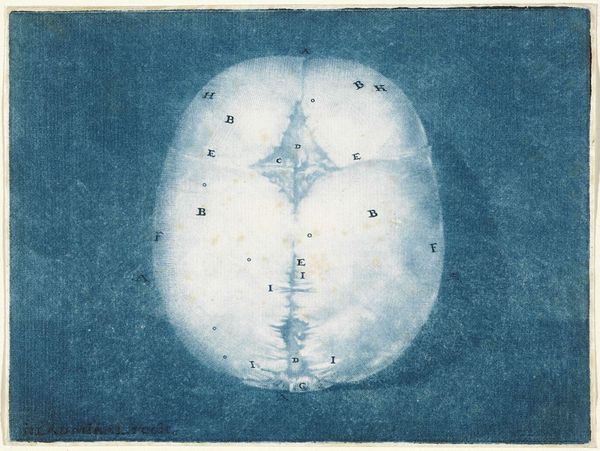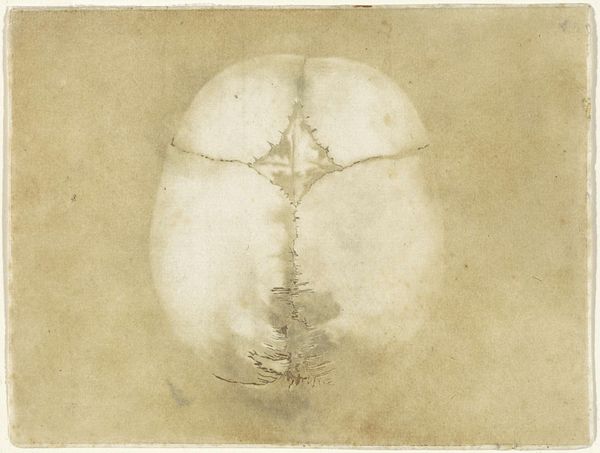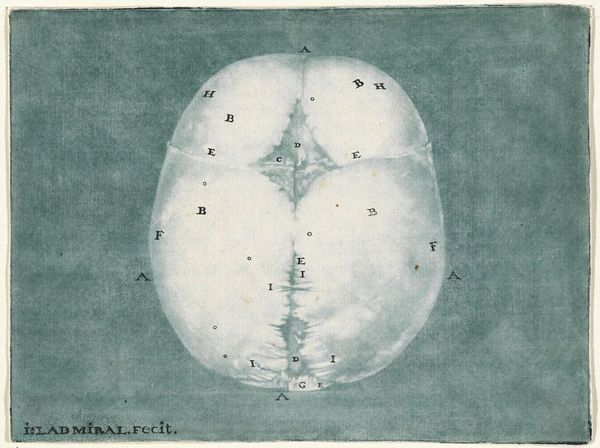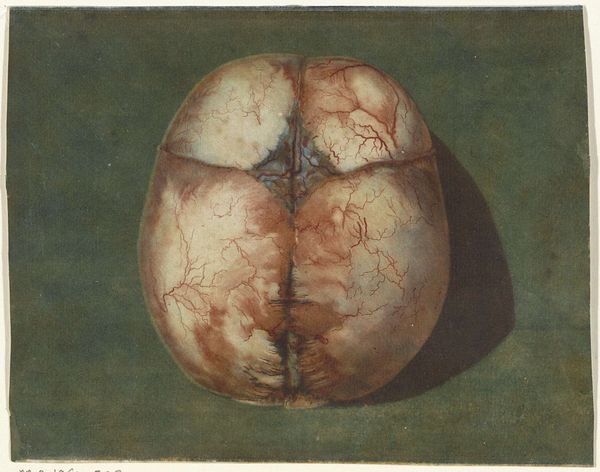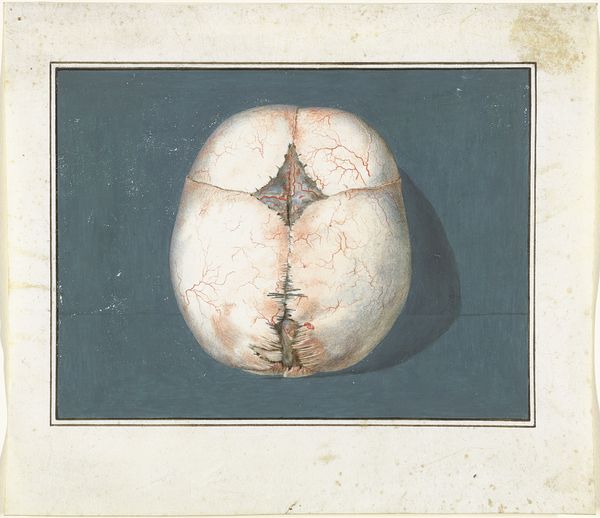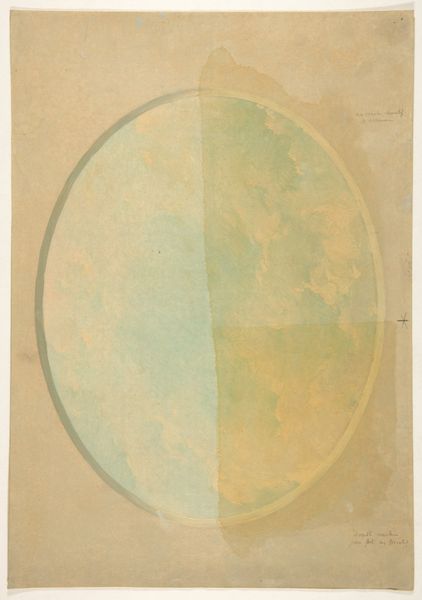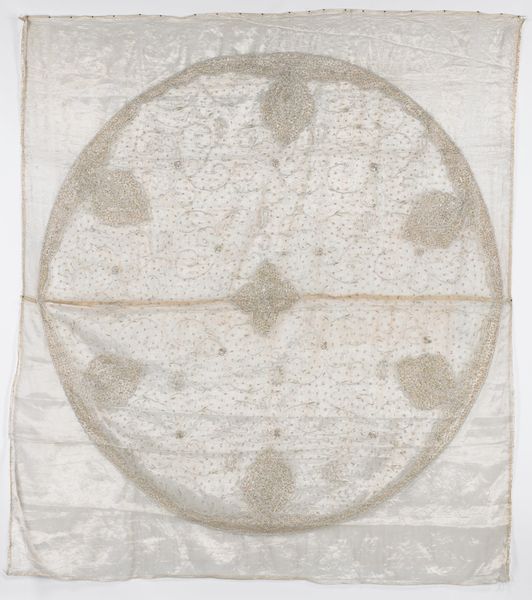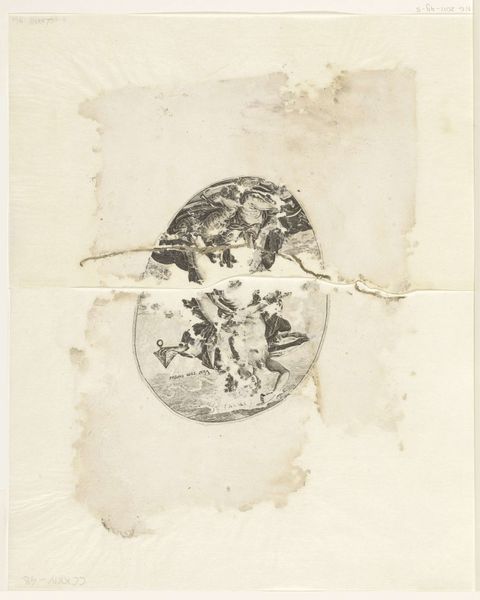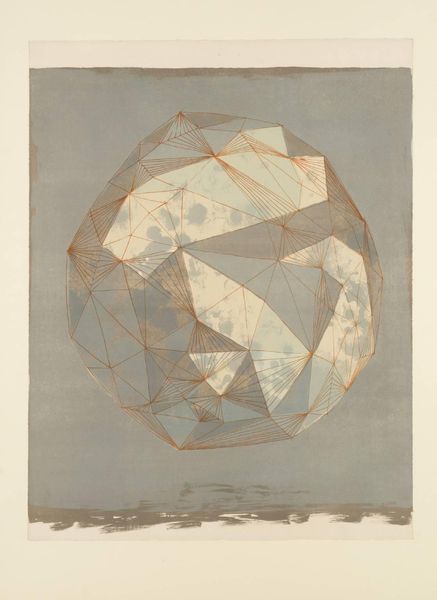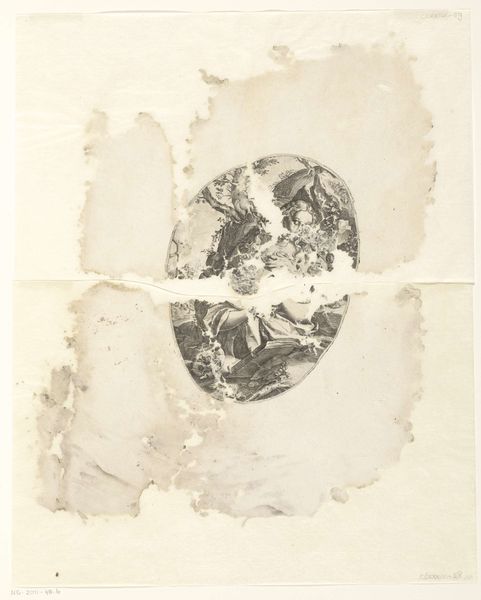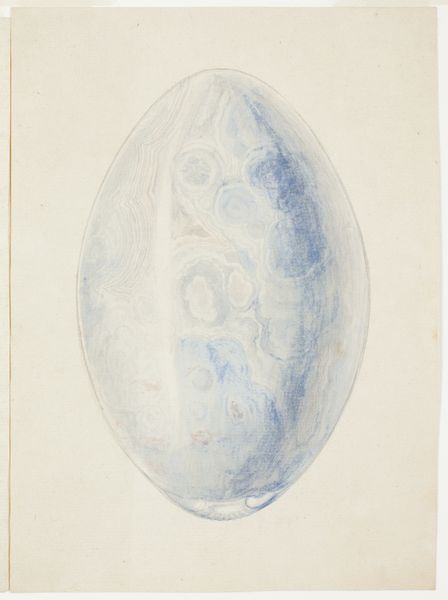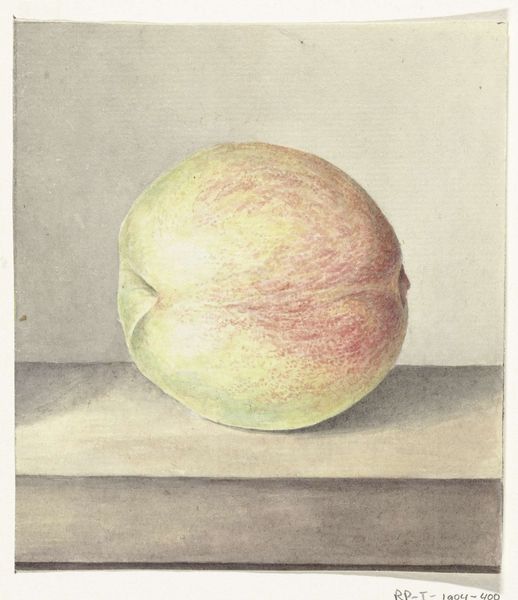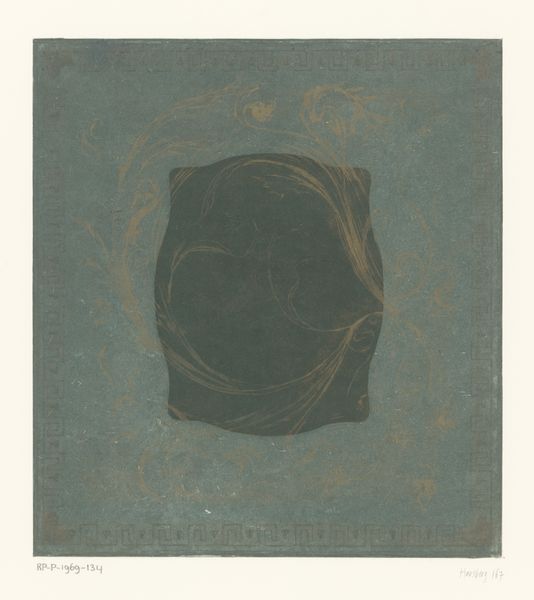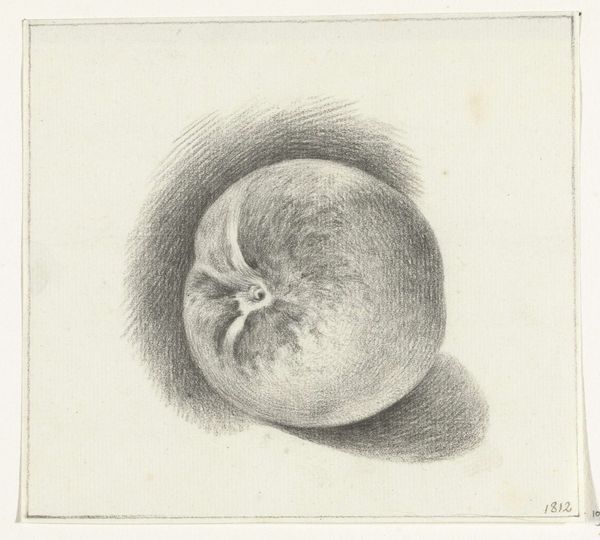
#
gouache
#
water colours
#
possibly oil pastel
#
coloured pencil
#
underpainting
#
pastel chalk drawing
#
painting painterly
#
watercolour bleed
#
watercolour illustration
#
watercolor
Dimensions: height 130 mm, width 173 mm
Copyright: Rijks Museum: Open Domain
Jan l' Admiral created this print, one of a series on the brain and heart, using a combination of etching and mezzotint. This printmaking technique yields an image notable for its tonal range. Look closely, and you’ll see how the texture of the bone is softly rendered. The fine lines of the etching process are visible in the background, contrasting with the subtle gradations achieved by the mezzotint. Admiral’s method involved roughening the entire plate with a tool called a rocker, then smoothing areas to create lighter tones. It’s painstaking work, demanding great skill, especially given the scientific purpose. But why this investment of labor? Before photography, accurate representation depended on the artistry of those like Admiral, who combined technical know-how with an aesthetic sensibility. This print wasn't just a record; it was a crafted image, situated at the intersection of scientific inquiry and artistic practice. The value lies not just in the information conveyed, but in the complex process of its making.
Comments
rijksmuseum over 2 years ago
⋮
Around 1735 Jan l’Admiral printed several remarkable anatomical prints in colour, among others on commission for the celebrated physician Frederik Ruysch. For his illustrations of the cerebral membrane (the skull of an unborn child) and a human heart he experimented with ever different colours, and made various versions of them. The objective was to provide medical practitioners with the most precise and realistic images possible.
Join the conversation
Join millions of artists and users on Artera today and experience the ultimate creative platform.
